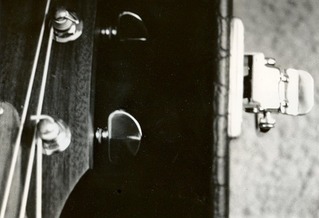-
Posts
1,040 -
Joined
-
Last visited
Content Type
Profiles
Forums
Events
Blogs
Everything posted by rachel
-

What's your desktop background/wallpaper?
rachel replied to The Magnificent Goldberg's topic in Miscellaneous - Non-Political
-

Why do people pay to hear music then talk while it's being played
rachel replied to medjuck's topic in Miscellaneous Music
I was at that show in the second row somewhere. I was having conversations too, but they were of the whispered "man, that's some bad shit" variety. Usually, nobody minds those. Jim and I were in the back row, where all the commotion was. Rachel was there, too - in the front row. Yeah, I didn't hear the commotion in the back; maybe it was because the guy sitting next to me, down front and center, was singing at the top of his lungs right along with the band to "First Circle". This was after he got the clapping intro *all* messed up, clapping as loud and as hard as possible. At that moment I longed for a not-so-great seat. -
Thanks, Chuck, for posting this. Give Ann my thanks, also!
-
That sounds fabulous!! Could you post the recipe?
-
It was a fabulous show! The two trombones sounded beautiful together! I loved the ballad that Paul did in the first set. The KC folks are in for a treat Monday night. I thought all of the players were outstanding, especially the piano player!! It was such a treat to not only get to meet Paul but to also experience his music in a live setting like that. Have fun in KC tomorrow night!
-
So.... I guess no lighter then?
-
...and can I stand up in front of the stage holding my lighter in the air yelling for "Free Bird"? I am *so* there!!
-
They were good for absolutely nuthin'. huh? I'd say it again, y'all....
-
The "mental" shaking of ass occurs only when one is participating in an activity where actual shaking of ass just might not be a good idea at the time, eg. while driving. Otherwise, it's just gonna happen.
-
Lowrider = always makes me stop what I'm doing and take a moment to shake my ass, at least mentally.
-
Oh! It's War "Me and Baby Brother" edited for typo.
-
To help anyone who'd like to try to figure it out, here's a link to the episodes on NBC.com. Click on "Fairway, My Lady" to see the scene. Click
-
I love the 60's Motown feel on Amy's latest, especially "Addicted" and "Tears Dry On Their Own".
-
There's no such thing as too much trombone!
-

Comedian Richard Jeni commits apparent suicide
rachel replied to BERIGAN's topic in Miscellaneous - Non-Political
I love him.... this is so sad! I remember that bit and also needing to 'come up for air' from laughing so hard. His set-ups were hilariously and intricately circuitous, always ending with the punchline that seems to come out of nowhere. I loved his Showtime specials back in the day. I just can't believe he's gone... -
I hear ya... Each time I hear a Boston song, especially from the first record, I can pretty much remember exactly where I was and what boy I had a crush on at that time. My brother became acquainted with him when he and my sister-in-law lived in Danvers Mass in the early 80's. Of Brad he said simply, "he was just a genuinely nice guy who would do anything to help anybody.." His Beatles tribute band 'Beatlejuice' kicks some serious ass, too. Too sad for words.
-

Hear Ye! Hear Ye! Get your pimp handle here!
rachel replied to dave9199's topic in Miscellaneous - Non-Political
Who keeps bringing up these old threads! -

Got problems with Yahoo.co.uk ?
rachel replied to The Magnificent Goldberg's topic in Miscellaneous - Non-Political
I can't either... -
Happy Birthday to one of my favorite tombonists!
-
Don't I wish I knew where to find her. This happened almost 15 years ago at a different practice. I have no idea where she is now.
-
Ditto everything Hot Ptah said. I've worked in Ophthalmology since the first generation multifocal lens was in its trial phase; the practice I was with was one of the principal investigators. I currently work at a practice where our chief surgeon trains other physicians in the technology and technique of multifocal refractive surgery.The most common problem that I have seen over the years with any new technology is when the patient has unrealistic expectations, that their vision will be "perfect" at distance, intermediate, and near, as well as poor patient selection by the physician. While some patients achieve "perfect vision", a lot do not because of pupil size, amount of astigmatism and the patient's personality in general. (One patient's "perfect vision" is another patient's "not acceptable" vision, depending on how they view the world in general) Some lenses correct different focal lengths better than other lenses; some lenses will cause more halos and glare at night because of the size of the optics. I agree that it's imperative that you have your evaluation and surgery done by someone with years of experience who uses the latest wavefront technology. They will be able to assess which lens will be appropriate for your particular visual system, or be able to tell you if you would not be a good candidate, which is, in my opinion, the most important assessment of all. BTW, Hot Ptah, we had a patient who was an artist a few years ago who painted what she "saw" while having cataract surgery. It was some of the most beautiful images/colors/patterns I have ever seen.
-

Judy the Housecleaning Chimp
rachel replied to Teasing the Korean's topic in Miscellaneous - Non-Political
-
I second that!! Happy Birthday Big Al! I hope you have a great day with lots of cake with lots of icing!
-
Sweet Baby!! that's not a regular chickadee, is it? (inside joke, everybody....)
_forumlogo.png.a607ef20a6e0c299ab2aa6443aa1f32e.png)

